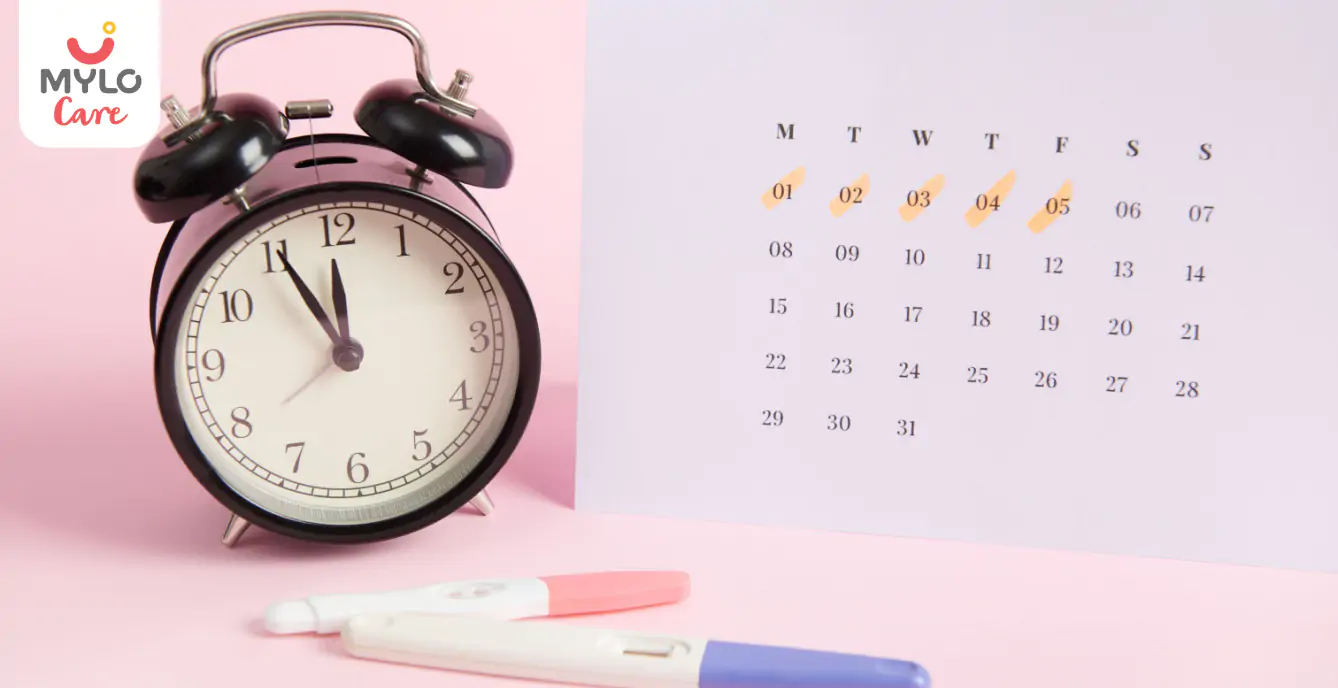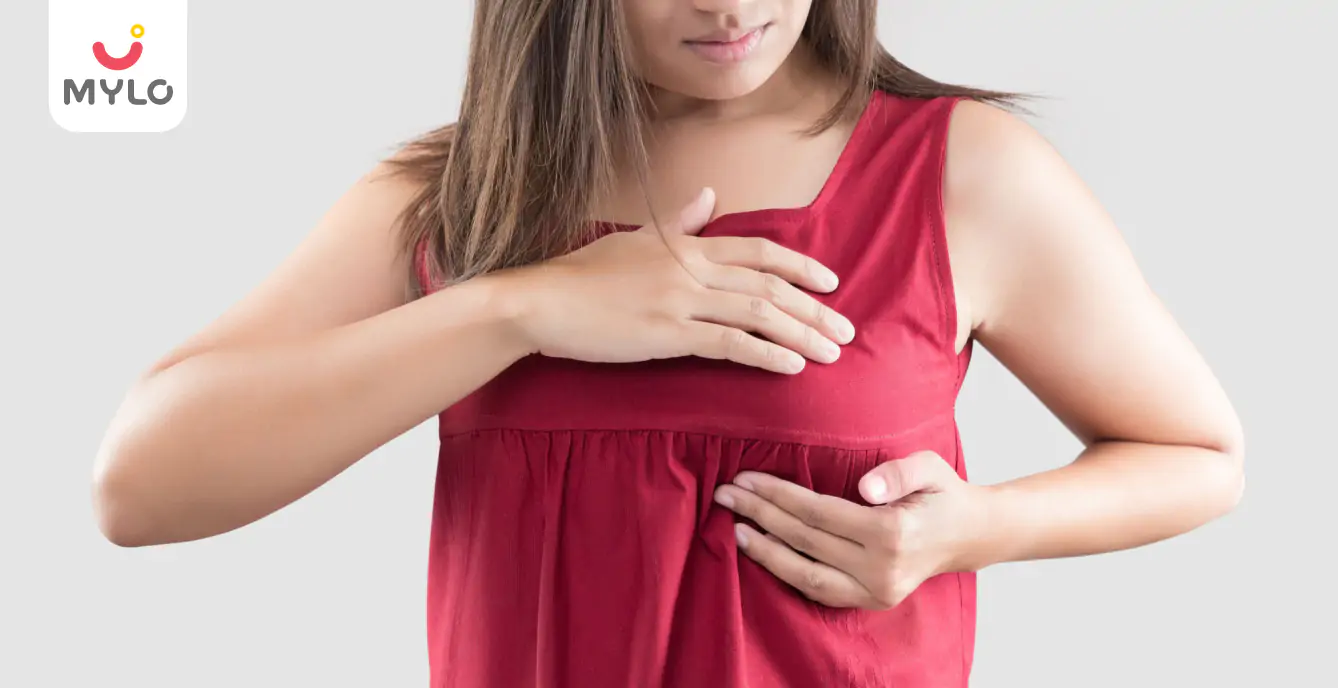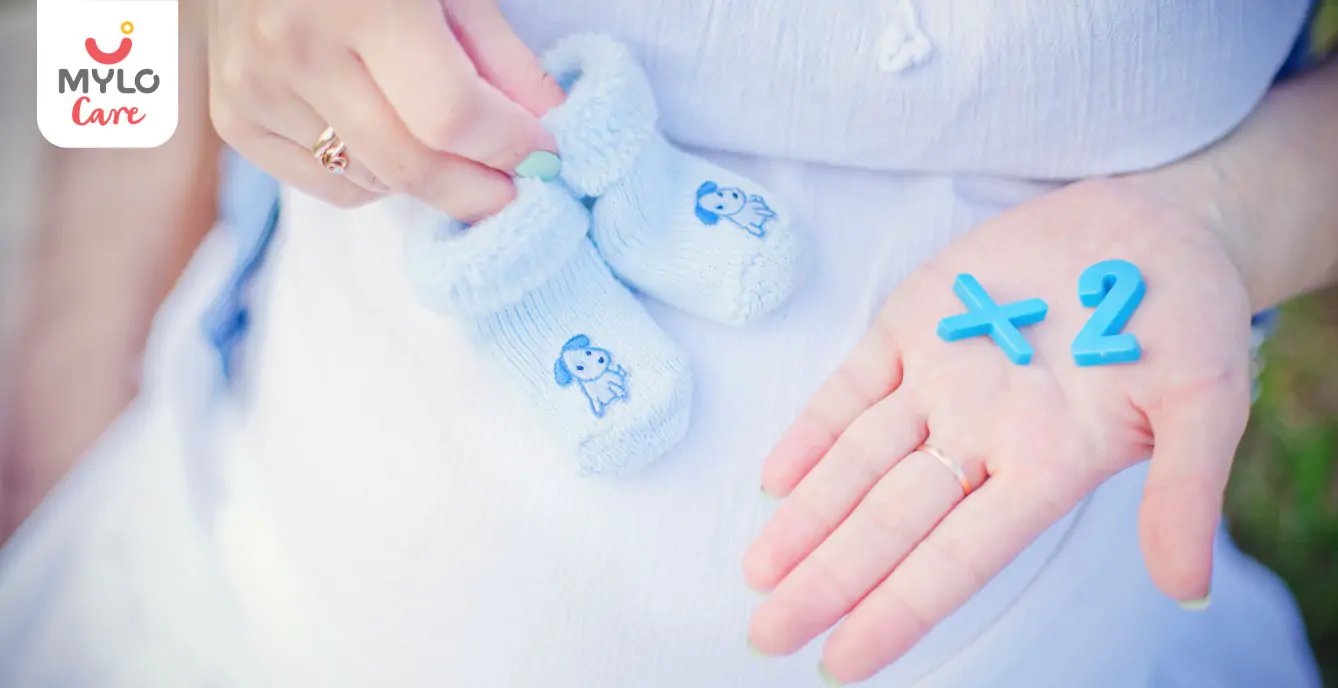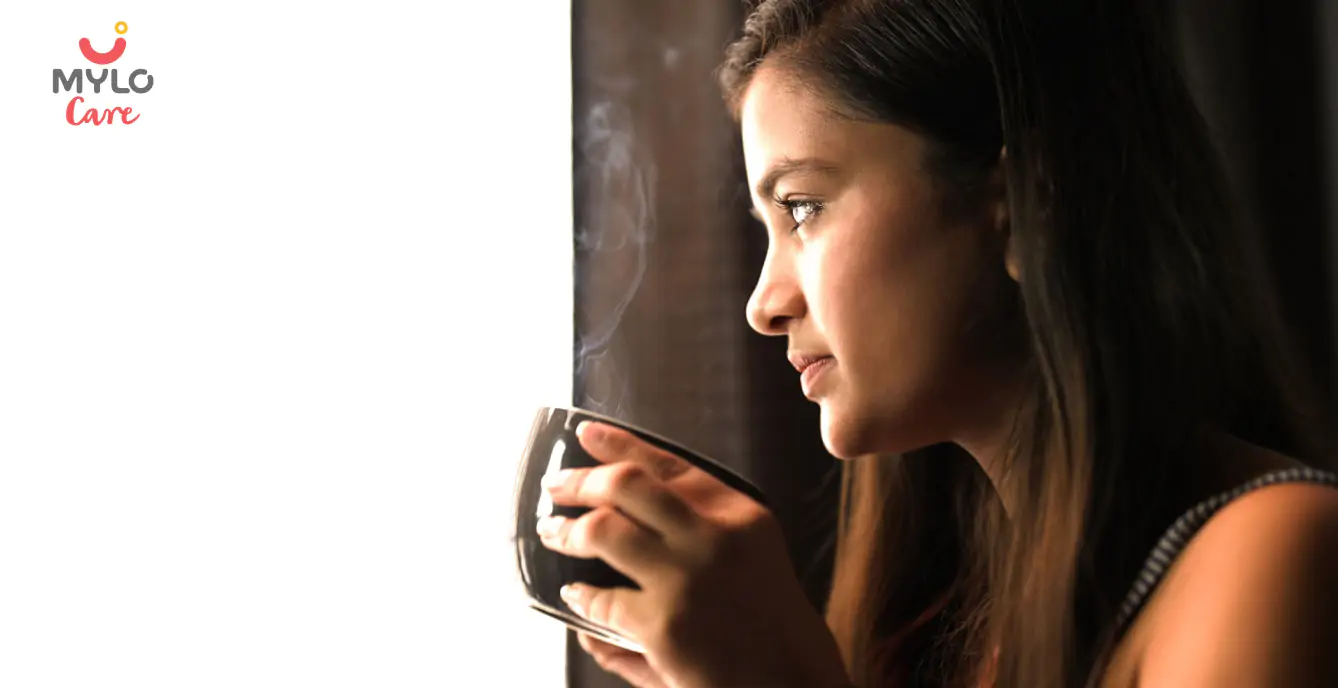- Home

- The Ultimate Guide to Abdominal Pain After Abortion Causes and Care
In this Article
Getting Pregnant
The Ultimate Guide to Abdominal Pain After Abortion Causes and Care
Updated on 23 February 2024
Whether you were advised by doctors to undergo an abortion or made the choice yourself, we understand that it must not have been an easy one. And dealing with physical discomfort during an already challenging time can be tough. But understanding the causes of abdominal pain after abortion and knowing how to care for yourself can make a world of difference.
In this article, we'll explore the various reasons behind abdominal pain post-abortion and provide practical advice on how to manage it. Whether you're seeking reassurance, information, or guidance, we're here to support you every step of the way.
Is it normal to experience stomach pain after abortion?
Abortion is a medical procedure that can have physical and emotional effects on a woman's body. One common symptom experienced by some women after an abortion is abdominal pain. The question arises: is it normal to experience such pain after an abortion?
The answer is yes, it is normal to experience lower stomach pain after abortion. The uterus goes through a process of healing and contracting after the procedure, which can cause discomfort and pain. Additionally, hormonal changes and the body's natural response to the abortion can contribute to abdominal pain.
However, it is important to note that while some pain is normal, severe or prolonged pain should be addressed by a healthcare professional.
You may also like: Is Breast Pain after Abortion Normal? What You Need to Know
What are the causes of after-abortion pain in lower abdomen?
After an abortion, it is not uncommon for women to experience pain in the lower abdomen. There are several potential causes for this discomfort. Understanding these causes can help women better manage and care for their bodies post-abortion.
1. Uterine contractions
The uterus undergoes contractions to expel any remaining tissue after an abortion. These contractions can cause cramping and lower abdominal pain after abortion.
2. Infection
In rare cases, an infection can occur after an abortion. Symptoms of an infection may include lower abdominal pain, fever, and abnormal discharge. If these symptoms occur, it is important to seek medical attention immediately.
3. Retained tissue
Sometimes, after an abortion, small pieces of fetal tissue or placenta may remain in the uterus. This can cause pain and may require further medical intervention to remove the remaining tissue.
4. Scar tissue formation
In some cases, scar tissue may form after an abortion. This can lead to abdominal pain, as the scar tissue can cause organs to adhere to one another.
5. Emotional distress
It is important to recognize that emotional distress can manifest physically as well. After an abortion, some women may experience abdominal pain as a result of emotional stress and anxiety.
How long does the pain last after an abortion?
The duration of abdominal pain after an abortion can vary from woman to woman. In general, the pain should subside within a few days to a couple of weeks. The intensity and duration of the pain can depend on various factors, such as the type of abortion procedure, individual pain tolerance, and overall health.
It is important to note that if the pain persists or worsens over time, it is essential to seek medical attention. Prolonged or severe pain may indicate an underlying issue that requires further evaluation and treatment.
You may also like: After-Abortion Sex: A Guide to Physical and Emotional Wellness
Tips to manage abdominal pain after abortion
Experiencing abdominal pain after an abortion can be uncomfortable, but there are several tips and treatments that can help manage and alleviate the pain. Here are ten suggestions to consider:
1. Rest and take it easy
Allow your body time to heal by getting plenty of rest and avoiding strenuous activities.
2. Apply heat
Applying a heating pad or hot water bottle to the lower abdomen can help relieve cramps and reduce pain.
3. Take over-the-counter pain relievers
Nonsteroidal anti-inflammatory drugs (NSAIDs) like ibuprofen can help reduce inflammation and alleviate pain.
4. Stay hydrated
Drinking plenty of fluids can help prevent dehydration and ease abdominal discomfort.
5. Eat a balanced diet
Consuming nutritious foods can promote healing and provide the necessary nutrients for recovery.
6. Avoid sexual activity
Refrain from engaging in sexual activity until cleared by your healthcare provider to prevent potential complications and further discomfort.
7. Practice relaxation techniques
Deep breathing exercises, meditation, and yoga can help reduce stress and relax the body, potentially easing abdominal pain.
8. Use over-the-counter antacids
If you experience stomach acid-related pain, antacids can help neutralize the acid and provide relief.
9. Wear loose and comfortable clothing
Tight clothing can put pressure on the abdomen and exacerbate pain. Opt for loose-fitting clothes to minimize discomfort.
10. Seek support
Reach out to friends, family, or support groups to talk about your experience and emotions. Emotional support can aid in pain management.
Remember, always consult with your healthcare provider before trying any new treatments or medications to ensure they are safe and appropriate for your specific situation.
You may also like: How Soon After an Abortion Can You Get Pregnant?
When to be concerned about lower abdominal pain after abortion?
While some degree of abdominal pain is normal after an abortion, there are certain signs and symptoms that warrant immediate medical attention. If you experience any of the following, it is important to seek prompt medical care:
-
Severe or worsening pain that does not improve with over-the-counter pain relievers
-
Heavy bleeding that soaks through more than one pad per hour for several hours
-
Foul-smelling vaginal discharge
-
Fever of 100.4 degrees Fahrenheit (38 degrees Celsius) or higher
-
Severe nausea or vomiting
-
Dizziness or fainting
These symptoms could indicate complications such as infection, retained tissue, or other underlying issues that require medical intervention. It is crucial not to ignore these warning signs and to seek professional help promptly.
Final Thoughts
Abdominal pain after abortion is a common occurrence, and in most cases, it is normal and part of the healing process. However, it is important to pay attention to the duration, intensity, and accompanying symptoms of the pain. If you have any concerns or the pain persists or worsens, do not hesitate to seek medical advice. Your healthcare provider can evaluate your condition, provide appropriate treatment, and ensure your well-being. Remember, every woman's experience is unique, so it is essential to prioritize self-care and listen to your body throughout the recovery process.



Written by
Anandita Sharma
Drawing on more than a decade of expertise in administration, Anandita Sharma currently serves as a content operations e
Read MoreGet baby's diet chart, and growth tips

Related Articles
How Respiratory Syncytial Virus (RSV) Impacts Premature Babies Differently: What Every Parent Needs To Know
Adverbs: A Comprehensive Guide to help small children learn the usage of adverbs
Expand Your Child's Vocabulary with words that start with X: Easy, Positive, and Engaging Words, Animals, Countries, and Fruits
Unlocking Language Proficiency: The Ultimate Guide to Top 100 Sight Words for Kindergarten and Beyond
Related Questions
Influenza and boostrix injection kisiko laga hai kya 8 month pregnancy me and q lagta hai ye plz reply me

Hai.... My last period was in feb 24. I tested in 40 th day morning 3:30 .. That is faint line .. I conculed mylo thz app also.... And I asked tha dr wait for 3 to 5 days ... Im also waiting ... Then I test today 4:15 test is sooooo faint ... And I feel in ma body no pregnancy symptoms. What can I do .

Baby kicks KB Marta hai Plz tell mi

PCOD kya hota hai

How to detect pcos

Related Topics
RECENTLY PUBLISHED ARTICLES
our most recent articles

Ovulation Prediction Kits
Ovulation Kit 101: A Beginner's Guide to Tracking Fertility & Maximizing Your Chances of Conception

Abortion
Is Breast Pain after Abortion Normal? What You Need to Know

Twins & Triplets
Twin Pregnancy: Signs, Types & Risks

Women Specific Issues
Chasteberry Benefits: The Natural Remedy You Need for Infertility, Hormonal Imbalance, and PMS

Baby Shower
The Ultimate Guide to Planning the Perfect Baby Shower

Announcements & Celebrations
50+ New Born Baby Wishes to Congratulate New Parents
- First Period After C Section: How Long Does It Last
- Introducing Solid Foods to your 6-month-old Baby? Here is a complete Food Chart along with some Nutritious Recipes
- What to expect about the height/length of 6 months old?
- The Development of Your Kid at the Age of Four Months
- Burping Your Baby
- What Is the Significance of Motor Skills in Children & How to Develop Them?
- The Ultimate Guide to Formula Milk: Everything You Need to Know
- Are baby monitors safe or dangerous for your little ones? How to protect your baby from EMF Radiations?
- Here’s a List of a Lot of Things That You Need to Know When Your Baby Starts Rolling Over
- How to Travel Around the World Stress-Free With Your Baby?
- গর্ভবতী হওয়ার জন্য প্রধান 10টি যৌন অবস্থান: গর্ভধারণের চেষ্টাকারী দম্পতিদের জন্য আলোচনা | Top 10 Sex Positions to Get Pregnant: The Ultimate Guide for Couples Trying to Conceive in Bengali
- Welcoming New Born Baby Quotes to Celebrate Life's Greatest Gift
- It's a Baby Girl! 50+ Ideas for Announcing Your Daughter's Birth
- Never Miss These Crucial Warning Signs of Emotional Development Problems in Your Baby


AWARDS AND RECOGNITION
Mylo wins Forbes D2C Disruptor award
Mylo wins The Economic Times Promising Brands 2022
AS SEEN IN
















At Mylo, we help young parents raise happy and healthy families with our innovative new-age solutions:
- Mylo Care: Effective and science-backed personal care and wellness solutions for a joyful you.
- Mylo Baby: Science-backed, gentle and effective personal care & hygiene range for your little one.
- Mylo Community: Trusted and empathetic community of 10mn+ parents and experts.
Product Categories
baby carrier | baby soap | baby wipes | stretch marks cream | baby cream | baby shampoo | baby massage oil | baby hair oil | stretch marks oil | baby body wash | baby powder | baby lotion | diaper rash cream | newborn diapers | teether | baby kajal | baby diapers | cloth diapers |





